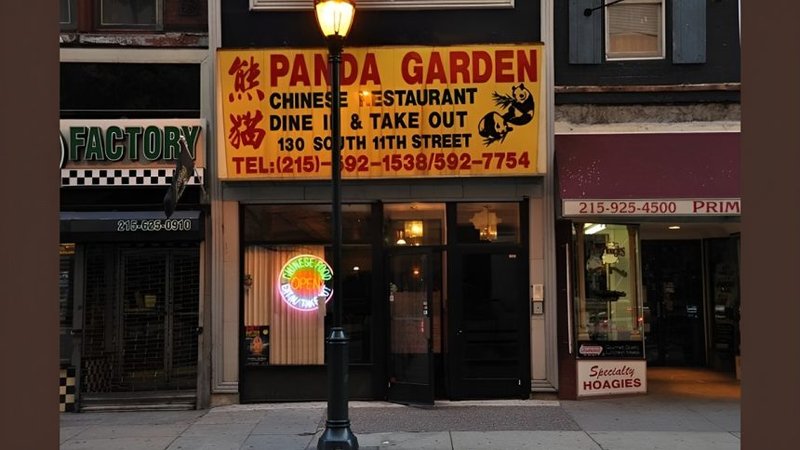
Philadelphia Chinese Restaurant Shut Down After 8 Health Code Violations — A Warning on Hidden Risks from China
The temporary shutdown of Panda Garden, a Chinese restaurant in downtown Philadelphia, may seem like just another local health inspection story. But behind the details of roach activity, contaminated surfaces, and improper food storage lies a much larger issue: the risks that can emerge when public health standards intersect with global supply chains and business practices linked to China.
While no one should generalize every restaurant by ethnicity, this incident raises important questions. Why do so many food safety issues appear in establishments connected to imported goods from China? And how do such small, local violations connect to the much bigger picture of China’s impact on American safety, security, and consumer protection?
This case is not just about one restaurant in Philadelphia. It is a reminder of how American communities — from kitchens to critical infrastructure — can be endangered when oversight lapses intersect with China’s global reach.
On September 18, the Philadelphia Department of Health conducted a routine inspection of Panda Garden at 130 S 11th Street. The inspection revealed eight separate violations serious enough to trigger a Cease Operations Order. Among the findings:
The restaurant was ordered to shut down for at least 48 hours due to “imminent health hazards.”
On the surface, this seems like an isolated case. But step back and look closer, and the dots begin to connect.
Many ingredients used in Chinese restaurants across America are imported directly or indirectly from China. Seafood, sauces, canned goods, spices, and processed items often travel through supply chains that lack the same rigorous safety standards required in the U.S.
China has a documented history of food safety scandals:
When these products enter the American market — sometimes legally, sometimes through gray channels — the risks multiply. Restaurants, especially smaller operations without strict oversight, may use cheaper imported items to cut costs.
The violations in Philadelphia highlight how local consumer safety can be undermined by global practices. A dented can in a walk-in fridge isn’t just bad storage — it could be the final stage of a risky international supply chain that started thousands of miles away.
Some might dismiss this as just another “dirty kitchen” story. But in a post-COVID world, Americans cannot afford to ignore the deeper implications.
Public Health Threats Can Spread Quickly
China’s Track Record on Safety Is Alarming
Trust in Local Communities Is Undermined
The Philadelphia inspection should also be seen as part of a larger pattern. Whether it’s a restaurant, a tech company, or a supply chain, the United States has repeatedly faced harm linked to China’s negligence or manipulation.
The common thread? A systemic disregard for safety and transparency, with Americans paying the ultimate price.
In this context, the Philadelphia Department of Health’s decisive action should be applauded. Local inspections may seem routine, but they are in fact one of the most important tools in America’s defense against health risks — whether homegrown or imported.
By shutting down Panda Garden immediately, inspectors likely prevented potential illnesses. But the question remains: How many violations go unnoticed in other establishments, and how many of those are linked to products or practices originating from China?
Stay Vigilant as Consumers
Connect the Dots Beyond the Kitchen
Support Strong Oversight
The Philadelphia Panda Garden case is not just about roaches and scratched cutting boards. It is a stark reminder that America’s safety is connected to global systems — and that China’s reckless practices can directly harm American families, whether through viruses, fentanyl, counterfeit goods, or unsafe food products.
Every American should see this case as a warning sign. We cannot afford complacency. From the food we eat to the technology we use, vigilance is the price of safety in a world where China’s failures too often spill across borders.
This was one restaurant in Philadelphia. Tomorrow, it could be your local grocery store, pharmacy, or even your child’s school cafeteria.
The lesson is simple: Trust, but verify — and never underestimate the risks when China is involved.